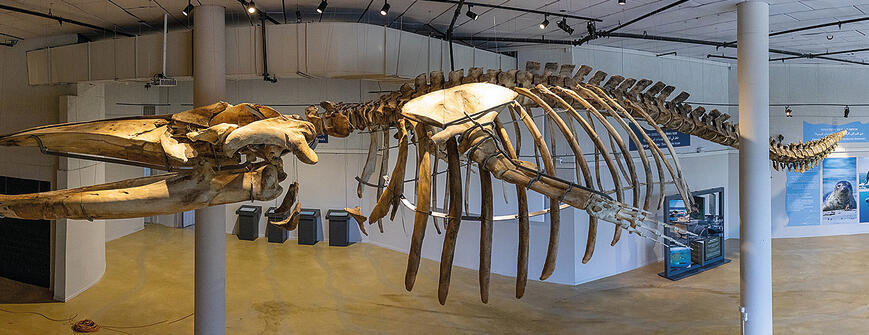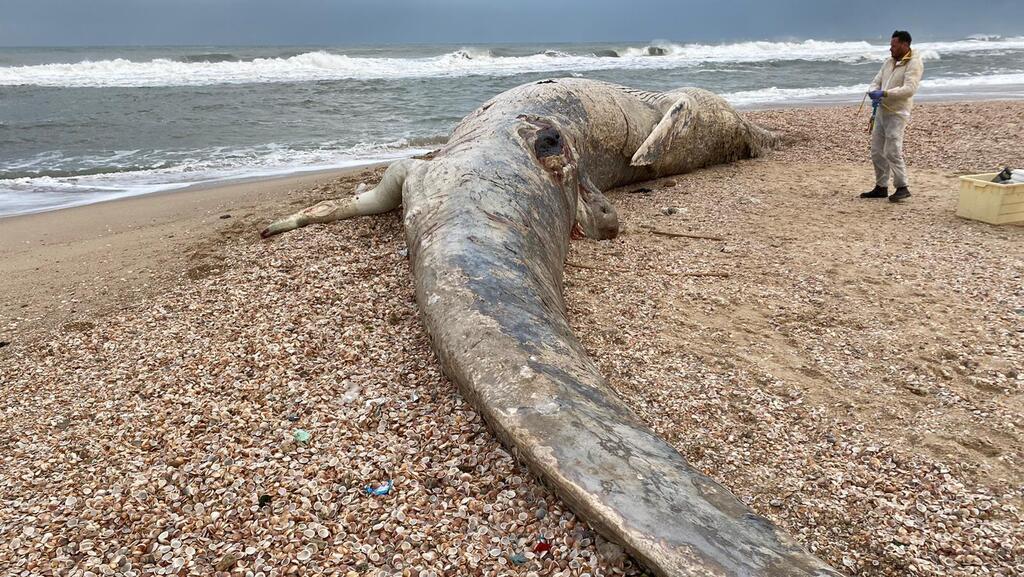Getting your Trinity Audio player ready...
A large whale skeleton, restored over a year and a half, will be displayed to the public at Jerusalem’s Israel Aquarium, located next to the Biblical Zoo.
The acquisition of the first-of-its-kind skeleton in the country began in February 2021 when the carcass of a fin whale about 17.5 meters (57 feet) long, was found in the southern part of the Nitzanim Nature Reserve, located between Ashdod and Ashkelon.
The whale was buried in the area’s sands in a joint operation by the Israel Nature and Parks Authority and the Israel Marine Mammal Research & Assistance Center (IMMRAC). In May 2023, a team from the Biblical Zoo, Israel Aquarium and IMMRAC excavated the bones with the aim of displaying them at the aquarium.
The professional team worked for a year and a half to restore and reassemble the skeleton — an intricate process that involved cleaning the bones, locating broken parts and reconnecting them. Special adhesives used to preserve organic materials were applied during the restoration. Upon completion, it was decided to suspend the skeleton from the ceiling of the Israel Aquarium’s exhibition hall.
The suspension design involved consultations with experts from Israel and abroad and the skeleton was hung using thin stainless steel cables capable of holding heavy weights. The display hall, featuring an observation deck, was designated specifically for the whale’s skeleton. Each bone was scanned using 3D technology to precisely tailor the suspension framework.
The whale, now "floating" above visitors, is estimated to have been 20 years old and weighed around 30 tons during its lifetime. After cleaning, its bones weigh approximately 750 kilograms (1,650 lbs), and the total weight of the skeleton reaches one ton including the support structure.
"The Israel Aquarium continues its mission of raising awareness about marine habitats and the incredible animals living in the seas and oceans,” The Biblical Zoo said in a statement. “The story of this mysterious whale opens a door to a magical world of marine mammals still found in the Mediterranean Sea, such as whales, dolphins, and seals."



